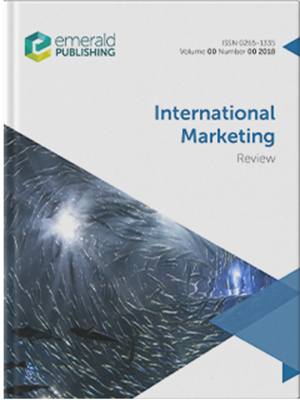Supply chains and ecosystems for servitization: a systematic review and future research agenda
IF 4.6
3区 管理学
Q1 BUSINESS
引用次数: 4
Abstract
PurposeRecent research has recognised the importance of supply chains and ecosystems as key drivers of successful servitization strategies, especially in the context of inter-organisational relations (IOR). The body of knowledge has, however, become increasingly fragmented and diverse due to different disciplinary roots of both servitization and IOR research. The purpose of this paper is to take stock of current knowledge and to generate a set of future research directions for servitization-related supply chain and ecosystem research.Design/methodology/approachA systematic review methodology was applied. A thematic analysis was conducted on a sample of 34 papers in the period 2010–2021 to identify the key themes within the servitization-related supply chain and ecosystem literature.FindingsThe review revealed a limited, but expanding, knowledge base for servitization-related supply chain and ecosystem research. The findings provide insight into current trends across four thematic areas: theoretical orientation, methodological approaches, research context and research content. Within these themes, it was found that four main areas of research content have been studied (supplier relationships, risk perception and uncertainty, capability development and resource integration), with most research adopting case-based methodologies within three main industrial contexts: manufacturing, industrial and software. Finally, a broad range of theoretical orientations have led to an increasingly fragmented and diverse literature base.Originality/valueThis study is the first to review servitization-related supply chains and ecosystems. It contributes insights through an IOR lens to categorise and organise a core set of themes and concepts for servitization-related supply chain and ecosystems research. It identifies research gaps within the extant literature and presents a set of future research directions.服务化的供应链和生态系统:系统回顾和未来研究议程
目的最近的研究已经认识到供应链和生态系统作为成功服务化战略的关键驱动因素的重要性,特别是在组织间关系(IOR)的背景下。然而,由于服务化和IOR研究的不同学科根源,知识体系变得越来越分散和多样化。本文的目的是总结当前的知识,并为服务化相关的供应链和生态系统研究提供一套未来的研究方向。设计/方法/方法采用了系统评审方法。对2010-2021年期间的34篇论文样本进行了主题分析,以确定服务化相关供应链和生态系统文献中的关键主题。发现该综述揭示了服务化相关供应链和生态系统研究的有限但不断扩大的知识库。这些发现深入了解了四个主题领域的当前趋势:理论方向、方法论方法、研究背景和研究内容。在这些主题中,研究发现研究内容的四个主要领域(供应商关系、风险感知和不确定性、能力开发和资源整合),大多数研究在三个主要行业背景下采用了基于案例的方法:制造业、工业和软件。最后,广泛的理论取向导致了越来越碎片化和多样化的文学基础。原创性/价值本研究首次回顾了与服务化相关的供应链和生态系统。它通过IOR视角对服务化相关供应链和生态系统研究的一组核心主题和概念进行分类和组织,从而提供见解。它确定了现存文献中的研究空白,并提出了一套未来的研究方向。
本文章由计算机程序翻译,如有差异,请以英文原文为准。
求助全文
约1分钟内获得全文
求助全文
来源期刊

International Marketing Review
BUSINESS-
CiteScore
8.70
自引率
12.00%
发文量
55
期刊介绍:
International Marketing Review (IMR) is a journal that has, as its core remit, the goal of publishing research that pushes back the boundaries of international marketing knowledge. IMR does this by publishing novel research ideas, and by publishing papers that add substance to, question the basic assumptions of, reframe, or otherwise shape what we think we know within in the international marketing field. IMR is pluralistic, publishing papers that are conceptual, quantitative-empirical, or qualitative-empirical. At IMR, we aim to be a journal that recognizes great papers and great research ideas, and works hard with authors to nurture those ideas through to publication. We aim to be a journal that is proactive in developing the research agenda in international marketing, by identifying critical research issues, and promoting research within those areas. Finally, IMR is a journal that is comfortable exploring, and that fosters the exploration of, the interfaces and overlaps between international marketing and other business disciplines. Where no interfaces or overlaps exist, IMR will be a journal that is ready to create them. IMR’s definition of international marketing is purposefully broad and includes, although is not restricted to: -International market entry decisions and relationships; -Export marketing and supply chain issues; -International retailing; -International channel management; -Consumer ethnocentrism, country and product image and origin effects; -Cultural considerations in international marketing; -International marketing strategy; -Aspects of international marketing management such as international branding, advertising and new product development.
 求助内容:
求助内容: 应助结果提醒方式:
应助结果提醒方式:


